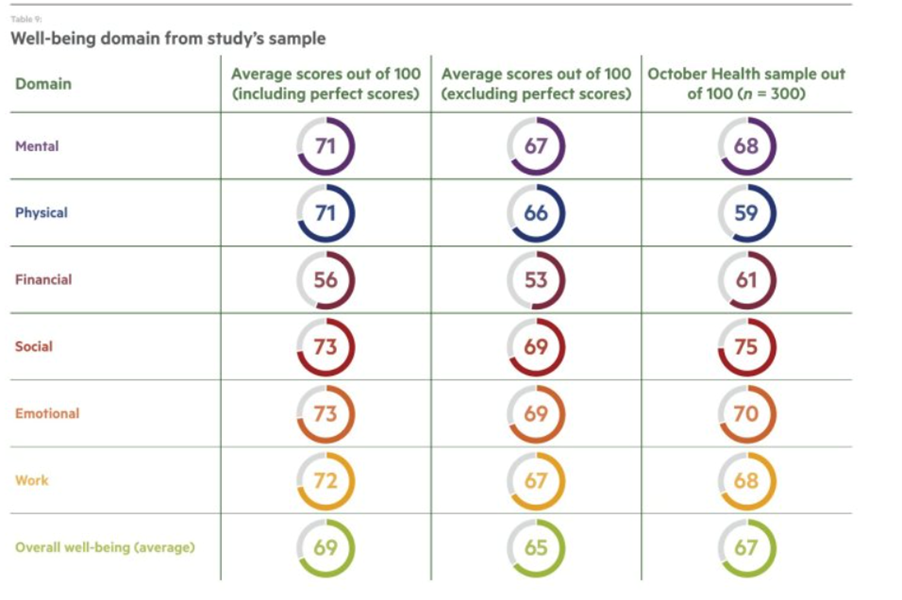Many workplaces have undergone dramatic and accelerated change on many levels during the past five years since the global COVID-19 pandemic and its subsequent fallout.
The widespread arrival of hybrid and flexible work, economic instability and uncertainty, and the need to adapt quickly to change have all contributed to employees’ elevated stress levels and sense of loneliness and isolation.
Despite this, the first Workplace Well-Being Report, produced by the Gordon Institute of Business Science, University of Pretoria (GIBS) in collaboration with October Health, showed that South Africans’ reputation for grit, resilience and the ability to overcome seemingly insurmountable challenges, is well-founded, with results that show ”remarkable levels of fortitude among workers.”
Principal researcher of the report and GIBS faculty Dr Frank Magwegwe explains that the new terminology which has crept into our professional vocabularies – phrases such as the Great Resignation, remote work, quiet quitting and boomerang employees – ”convey intense emotions, troubling events and negative experiences. They reflect how rapidly the world is changing and how difficult it can be to navigate the unrelenting instability.”
The report, which measured responses from a sample of 500 local participants, revealed that ”while workers face many challenges, they have cultivated strong coping mechanisms and support systems that allow them to maintain high levels of overall well-being.”
Mental Health Challenges
The post-pandemic working world has undergone an important shift, and many people now feel empowered to speak about their mental health. However, this is also indicative of the elevated levels of stress many are experiencing. Stigma around mental health issues remains in most organisational environments, exacerbated by corporate cultures that place undue emphasis on performance and resilience, often equating mental health challenges with weakness.
The persistent focus on a high performance culture can be damaging to mental health and the long-term performance of both the company and its employees. ”While it is important for organisations to drive profit, this must be balanced with well-being, and leaders must model the importance of well-being. Organisations don’t have to choose between performance or well-being,” Dr Frank Magwegwe, explains.
”We need to shift our beliefs, behaviours and attitudes and the way in which we think about employee well-being, as well as mental health. Many leaders still have the outdated mindset that emotions are not appropriate for the workplace and must be kept at home,” he said. ”In many organisations-mental health is not a frequently addressed concern,- the Workplace Wellbeing Report noted. ”When employees feel supported, they are more likely to perform at their best, be highly engaged and remain loyal to the organisation that gives them not just employment, but a sense of purpose and joy.”
There has been a pervasive and concerning rise of individuals struggling with their mental health across the globe. Common mental health challenges in the workplace include stress, anxiety, depression, substance abuse and burnout. The widespread adoption of remote or hybrid working at many workplaces as a result of the COVID-19 pandemic means there is a need to implement new strategies to encourage social connection. With a significant number of employees now working hybrid or in fully remote locations, these individuals may struggle with issues related to work-life balance, chronic fatigue and feelings of isolation and loneliness.
The State of the South African Workplace
According to the International Labour Organisation ”For all people, regardless of whether they have a mental health condition, workplaces can be places that enhance or undermine mental health.”Decent work is known to influence mental health positively. It not only provides the means to an income but also offers a platform for structured routines, positive relationships and for gaining a sense of purpose and achievement,” the report continues. However, ”On the other hand, poor working environments can all be sources of stress and pose a risk to mental health.”
The Workplace Well-Being Report found that well-being scores among participants are relatively high across the board, with most domains averaging in the low 70s. (See Fig 1 below) This indicates that most respondents’ perceptions of their mental, physical, social, emotional and work well-being are generally positive.

Fig 1. Well-being scores among participants are relatively high across the board, with most domains averaging in the low 70s.
”The general state of workers in South Africa is marked by a mix of challenges and resilience. On one hand, many workers face financial hardship, job insecurity, and the ongoing impact of South Africa’s challenges, such as low economic growth, high unemployment, inequality, poverty, crime, poor service delivery and the continued effects of the COVID-19 pandemic. On the other hand, there is a strong sense of resilience and a can-do attitude.”
The report aims to track over time:
- The overall well-being of working South Africans across the six dimensions of well-being.
- The availability of well-being resources in the workplace.
- The evolving role of leadership in overall well-being.
Employee Assistance Programmes and the Working Environment – What works, what doesn’t
”People are exhausted. People are stressed. Ultimately, this impacts individuals’ ability to perform in the workplace,” CEO and co-founder of mental wellness app October Health and former Uber SA General Manager Alon Lits said. One person in every four is diagnosed with depression in South Africa every year at an annual cost of R250 billion to the economy through absenteeism, presenteeism and staff retention, he continued.
Organisational wellness programmes, also known as Employee Assistance Programmes, must look after all six dimensions of the individual – mental, physical, financial, social, emotional and work – offering holistic solutions. The Workplace Well-Being Report notes that many organisations have attempted to implement employee wellbeing programmes, offering resources such as volunteering programmes, access to emergency savings and team building activities.
However, some cost effective and impactful resources were not widely available, including access to a mental health app, resilience training, mindfulness and meditation programmes and access to free healthy food and snacks. Line mangers and organisational leaders were found to have the greatest influence on the daily experience of employees at work. The Workplace Well-Being Report found that ”trust in the organisation and its leadership, and the belief that a manager is equipped to support employee well-being” had the most significant positive associations with overall well-being among respondents.
”When employees feel supported, they are more likely to perform at their best and remain loyal to the organisation, enhancing overall engagement and reducing turnover rates.- The findings reveal that -overall well-being consists of distinct but related domains, and that leaders or managers can directly influence the mental and emotional state of employees.”
”It is not about the environment, but rather about how your immediate manager, that you interact with on a daily basis, impacts you,” Magwegwe said. ”It is important that your manager is interested in and cares for your well-being. People are looking for leadership they can trust,” he continued
Employees are looking for relatable leaders who are prepared to be vulnerable, authentic and allow employees to bring their full selves to work. While there has been an important shift and a move towards the destigmatisation of discussions about mental health in many workplaces, the topic is still not given the prominence it requires. Many organisations place too much emphasis on performance, at the cost of employees’ wellbeing. Healthy behaviour needs to be modelled by leadership, and employee assistance programmes honed and refined to be truly effective.
























